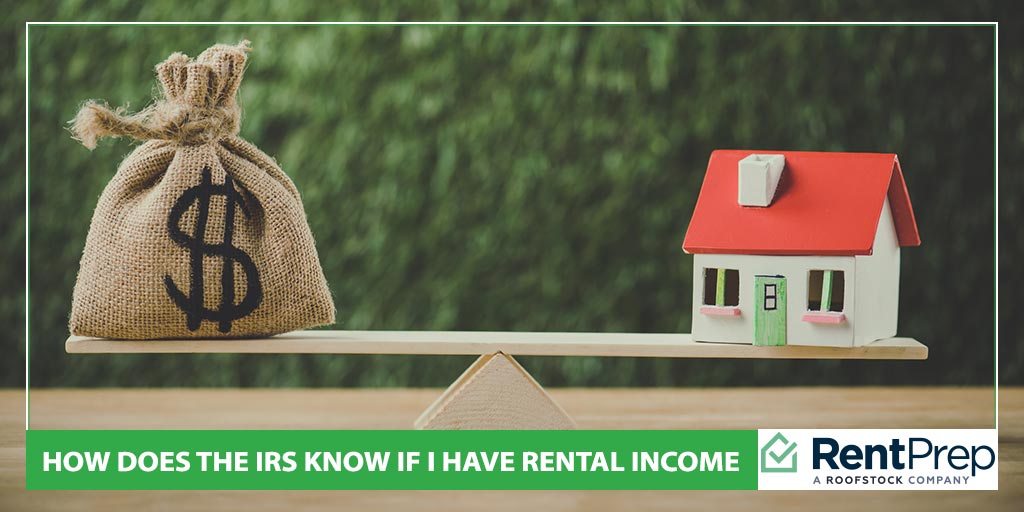
Do you have to tell the IRS about income from a rental property? Yes! Even if you only have one property or only do short-term rentals? Yes! The IRS considers income from renting a property as part of your total taxable income. If you don’t report it and they catch on, the financial consequences can be significant.
But how does the IRS know whether you earn from a rental property? There are several ways unreported rental income could be flagged with the IRS. Read on as we take a closer look.
We’ll also look at what could happen if you are caught not reporting rental income and share top tips on how to report rental income in a compliant way that can benefit your overall financial portfolio.
Table Of Contents: Rental Income And The IRS
Find relevant answers to your questions about rental income and the IRS below.
- How Does The IRS Know I Have Rental Income?
- What Happens If The IRS Discovers Unreported Rental Income?
- How Is Rental Income Taxed By The IRS?
- How Do I Report Rental Income To The IRS?
- FAQs
- Get Your Taxes In Order
How Does The IRS Know I Have Rental Income?

If you don’t report rental income yourself, there are still a variety of ways the IRS can learn that you are making money from a rental property. Any of these could trigger the IRS to investigate and take a closer look at your finances.
Information Reporting
If you have a mortgage on the rental property, the mortgage company will typically send both you and the IRS a Form 1098, which reports annual mortgage interest. This could tip off the IRS that you own rental property.
Furthermore, if you use a property management company, they may report the income they collect on your behalf.
Sometimes, tenants may report their rent payments, especially if they claim a tax benefit. For instance, if your tenant is a business, they might report the rent expense on their tax return.
A division within the IRS uses automated information comparisons to identify mismatches between what taxpayers report and information provided by banks and other taxpayers.
Audits Or Reviews
If you are audited for any reason, the IRS may discover evidence of rental income. For instance, bank records might show regular deposits that appear to be rent. Remember that IRS audit rates increase as income rises, so the more you earn, the more likely you are to face a random audit.
There are also several red flags that can trigger IRS audits. The most relevant for landlords include claiming higher-than-average deductions or losses, claiming significant rental real estate losses, engaging in many cash transactions, and claiming 100% business use of a vehicle.
Other Transactions
If you sell a property and report the sale on your taxes, the IRS may infer that it was a rental property based on the property type, length of ownership, and other factors.
State And Local Tax Authorities
Sometimes, the IRS receives information from state or local tax authorities. If you’re reporting rental income at the state level but not on your federal return, this may raise a red flag.
Whistleblowers
The IRS has a whistleblower program where individuals can report tax evasion or fraud. If someone, for any reason, reports that you have unreported rental income, the IRS might look into it.
The IRS Whistleblower Office pays monetary awards of 15-30% of the proceeds collected due to the whistleblower’s information as long as it does not exceed $2 million. So yes, people you know may have a reason to report you to the IRS.
Public Records
Real estate transactions are generally recorded in public records. Although the IRS doesn’t routinely scour these records looking for rental properties, the data is accessible.
What Happens If The IRS Discovers Unreported Rental Income?

Depending on your specific circumstances, you can expect several things to happen if the IRS discovers you have unreported rental income.
The most immediate consequence is you will owe back taxes on the unreported income. In addition, the IRS will charge interest on the unpaid amount from the due date of the return until the date you pay.
There may also be penalties or failing to report the income. The exact penalties can vary based on whether the failure is seen as negligence, a substantial understatement of income tax, or fraudulent intent.
If your understatement of income tax exceeds either 10% of the correct tax or $5,000, whichever is greater, you may be subject to a 20% penalty. If the IRS determines that your failure to report was due to fraud, this penalty can jump to 75%.
If you didn’t file a tax return or pay the full amount of tax when due, you might be subject to additional failure-to-file or failure-to-pay penalties.
The discovery of unreported rental income might lead the IRS to conduct a more comprehensive review or audit of your tax returns. This process could result in adjustments to other parts of your tax returns, not just the unreported rental income.
While rare for simple cases of unreported rental income, it’s technically possible to face criminal charges for tax evasion or fraud. This would typically require evidence of willful wrongdoing.
Generally, the IRS has three years from the filing date to audit a tax return. However, if you omit more than 25% of your gross income on your return, that statute can extend to six years. If you file a fraudulent return or don’t file a return at all, there’s no time limit on when the IRS can come after you.
If you realize you have unreported rental income or other mistakes on a previously filed tax return, it’s advisable to amend the return and pay any taxes owed as soon as possible. Taking proactive steps can help reduce potential penalties and interest.
How Is Rental Income Taxed By The IRS?
Rental income is taxed just like any other source of income, so how much you pay depends on the tax bracket you fall into. The IRS’ marginal tax rate for 2023 breaks down as follows.
| Income Range – Individual | Income Range – Couple | Tax Rate |
| $0-$11,000 | $0-$22,000 | 10% |
| $11,000-$44,725 | $22,000-$89,450 | 12% |
| $44,725-$95,375 | $89,450-$190,750 | 22% |
| $95,375-$182,100 | $190,750-$364,200 | 24% |
| $182,100-$231,250 | $364,200-$462,500 | 32% |
| $231,250-$578,125 | $462,500-$693,759 | 35% |
| $578,125+ | $693,750+ | 37% |
Rental income is calculated by adding all the rent you have received, plus any expenses from the property and the fair market value of any merchandise or services you received. If you plan on returning a security deposit at the end of a lease, it should not be included in your gross income from the property.
From this, you can deduct property-related costs such as advertising, depreciation, insurance premiums, maintenance, and property taxes.
If the overall amount exceeds zero, this is added to your overall taxable income. If it is less than zero, you can deduct this from your overall taxable income.
How Do I Report Rental Income To The IRS?
Reporting rental income to the IRS involves filing specific forms and understanding what counts as income and what you can deduct as expenses.
Continue reading for a step-by-step guide on reporting your rental income to the IRS.
Step 1: Gather The Necessary Information
Gather all the necessary information, which includes your rental income records for the year, records of all your expenses related to the property, and details of the property itself, such as its cost basis for depreciation.
Read our guide to keeping detailed records for your rental property here.
Step 2: Complete Schedule E (Supplemental Income And Loss)
Rental income should be reported as part of Schedule E of your tax submission.
- Part I: List rental real estate and royalty income and expenses.
- Line 3 (Rents Received): Report all rental income here.
- Lines 5-19: Enter deductible expenses related to your rental property (e.g., advertising, management fees, mortgage interest, insurance, repairs, property taxes, and more).
- Line 20 (Depreciation): If you’re eligible to claim depreciation on the property, complete Form 4562 (Depreciation and Amortization) and report the depreciation amount on Line 20 of Schedule E.
Step 3: Determine Net Income Or Loss
Just because you are receiving rental income does not mean you are making a profit. On Schedule E, after listing your income and deductions, you’ll calculate your total rental real estate and royalty profit or loss.
Read our complete guide to tax deductions for rental properties here.
Step 4: Report On Form 1040
Next, transfer the net income or loss from Schedule E to your Form 1040, U.S. Individual Income Tax Return.
Don’t forget to consider passive activity rules! Rental activities are generally considered “passive” unless you qualify as a real estate professional or actively participate in property management. Losses from passive activities might be limited in the amount you can deduct in a single year. Any losses you cannot deduct because of these rules can usually be carried forward to the next tax year.
Step 5: Depreciation
If you’re claiming depreciation on your rental property, you’ll need to file Form 4562 in addition to Schedule E. Depreciation lets you deduct a portion of the property’s cost basis (excluding land) over a specified number of years.
Find out more about depreciation rules for rental properties here.
Step 6: File All Forms With Your Tax Return
When you file your tax return, include Form 1040, Schedule E and any other relevant forms (like Form 4562 if you claimed depreciation).
State Taxes
If your state has an income tax, you’ll likely need to report rental income on your state return as well. The process and forms will vary by state. But as a general rule, you can use all the information you collected for your federal tax return to file your state taxes.
You can find more information about individual state income taxes here.
FAQs
Below are answers to some of the questions most frequently asked by landlords about rental income and the IRS.
Do I need to report rental income even if I don’t make a profit?
Yes. You should report all rental income you receive, even if your expenses exceed your income and result in a net loss.
Can I deduct rental losses from other income?
Typically, the IRS considers rental activities “passive,” which means losses from these activities can usually only offset passive income, not other types of income (like wages).
However, there’s an exception for active participants: They can deduct up to $25,000 of rental real estate losses against other income, though this benefit phases out for higher earners.
What’s the difference between repairs and improvements?
Repairs maintain the property in good condition but don’t add significant value or extend its life span (e.g., fixing a leak). Repairs are deductible in the year they’re done.
Improvements add value or extend the property’s life (e.g., adding a room). These costs are capitalized and depreciated over a set number of years. Learn more.
How do I handle security deposits?
Security deposits are not counted as income when you receive them as long as you return them to your tenants at the end of the lease. If you keep part or all of the deposit due to damages or unpaid rent, that amount should be reported as income in the year it’s retained.
What if I only rent out my property for a short time each year?
According to the IRS, if you rent out your property for 14 days or less during the year, you don’t have to report the rental income, and you can’t deduct rental expenses. However, this rule only applies if you also use the property as a home.
Get Your Taxes In Order
While it can be tempting not to report certain income from rental properties when doing your taxes, this is never a good idea. Renting a property is linked with a variety of other transactions and documents, which can easily be discovered by the IRS and show them you are underreporting. The resulting financial consequences aren’t worth any anticipated gains from not reporting.
Find more tax advice for rental property owners here.

